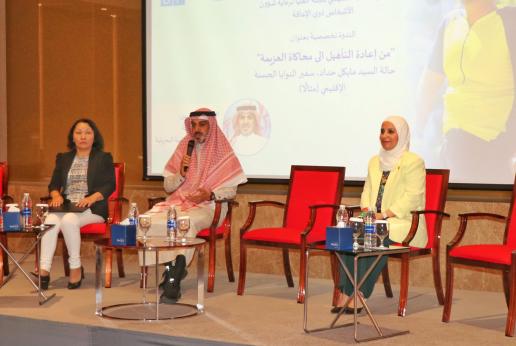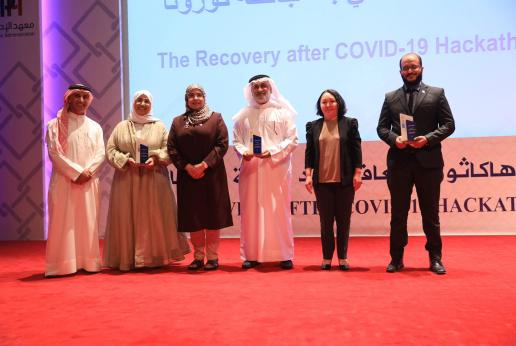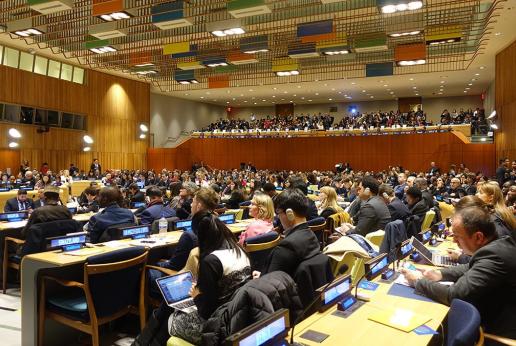Overview of the Cooperation Framework Results in 2021
The SCF 2021-2024 embodies the comprehensive and coherent response of the United Nations to development priorities in Bahrain and commitment to support the country in realizing its Economic Vision 2030 and SDGs. The document provided the foundation for the development by the United Nations Country Team of a Joint Work Plan for its practical implementation. The plan was developed for 2021-2022 and structured around the four priority areas of the cooperation framework and their corresponding outcomes as well as around 14 outputs. All 21 United Nations entities signatories of the SCF 2021-2024 contributed their planned activities to the document, which were consolidated into 57 sub-outputs. The document also included a series of indicators to allow for progress to be measured in its implementation.
During the year, the United Nations in Bahrain achieved significant results in the implementation of the plan across all its outcomes and outputs through the undertaking of activities under 37 of the 38 sub-outputs with timelines covering all or part of 2021. Most of these activities focused on capacity development and the provision of policy advice and thought leadership, closely matching national priorities.
Out of the 37 sub-outputs, 41 per cent had gender equality as a principal or significant objective, and 51 per cent have human rights as a principal or significant objective, reflecting the strong commitment of the United Nations Country Team to the promotion of human rights and gender equality in Bahrain. The support provided spanned all SDGs.
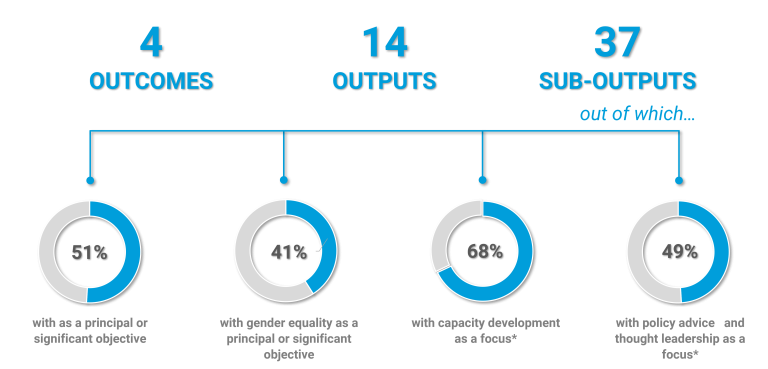
Key Results by Outcome
Financial Overview and Resource Mobilization
The total budget of the 2021-2022 Joint Work Plan under the SCF 2021-2024 stands at $36.5 million. Out of the total required resources, $12.1 million are available, which translates into a 33 per cent coverage rate. Another $24.5 million remain to be mobilized as of December 2021.
The total expenditures under the plan amounted to $4.8 million in 2021, including both core and non-core resources and taking the form of financial and in-kind contributions. About three fourths of the total expenditures were financed by contributing partners and the rest came from core resources. The funds were expended by 15 United Nations funds, programmes and specialised agencies that implemented activities in the Kingdom of Bahrain in 2021.
Contributions were made across all SDGs, with most funding being directed towards SDGs 8, 12, 9, 16 and 5, followed by the remainder.
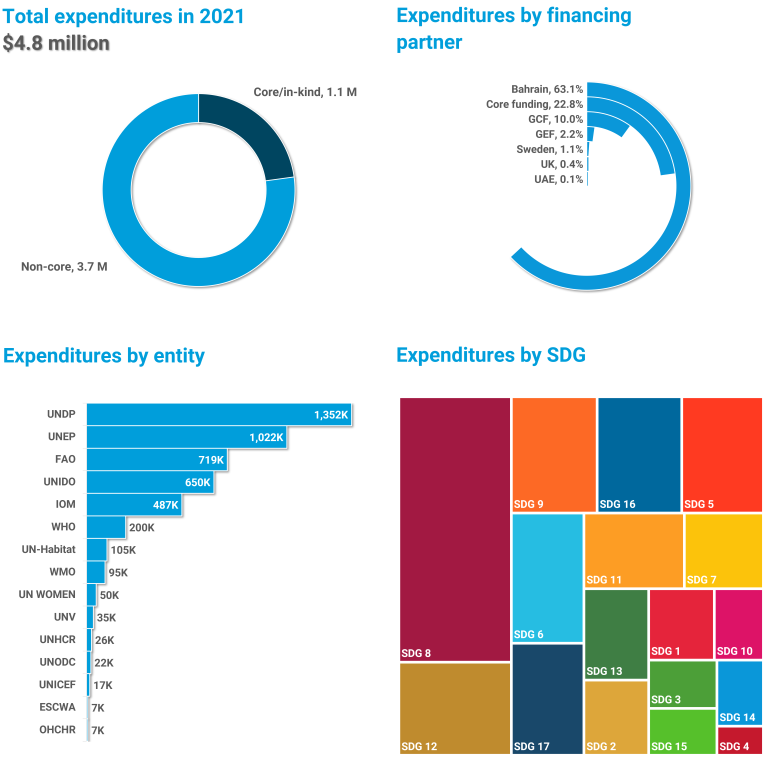
Also in this Chapter
In addition to making progress in the supporting the country in the four priority areas under the Cooperation Framework, the United Nations also strengthened its support to partnerships and financing of the 2030 Agenda and improved its coordination, coherence and efficiency. The progress achieved has not come without certain challenges and lessons learned during the year, which will inform the work of the United Nations in the country moving forward.
Partnerships and Support to Partnerships for the 2030 Agenda
The United Nations in Bahrain relies on the the support of its many partners to implement its development activities in the country, and it continued to strengthen its partnerships in 2021 through its numerous funds, programmes and specialized agencies. Click the card below to learn more →
United Nations Coherence, Effectiveness and Efficiency
The signing of the Cooperation Framework marked the greatest milestone from the coordination standpoint for the UNCT in Bahrain in 2021. Following the signing of this key strategic document, the UNCT made considerable further progress towards strengthening its coordination, coherence and efficiency on the ground. Click the card below to learn more →
Challenges and Lessons Learned
Several challenges constrained the implementation of the the Cooperation Framework in 2021. However, these challenges also served as an opportunity for the United Nations in Bahrain to adapt its programming and operations and strengthen its support. The lessons learned in 2021 will inform the United Nations work in the country moving forward. Click the card below to learn more →


